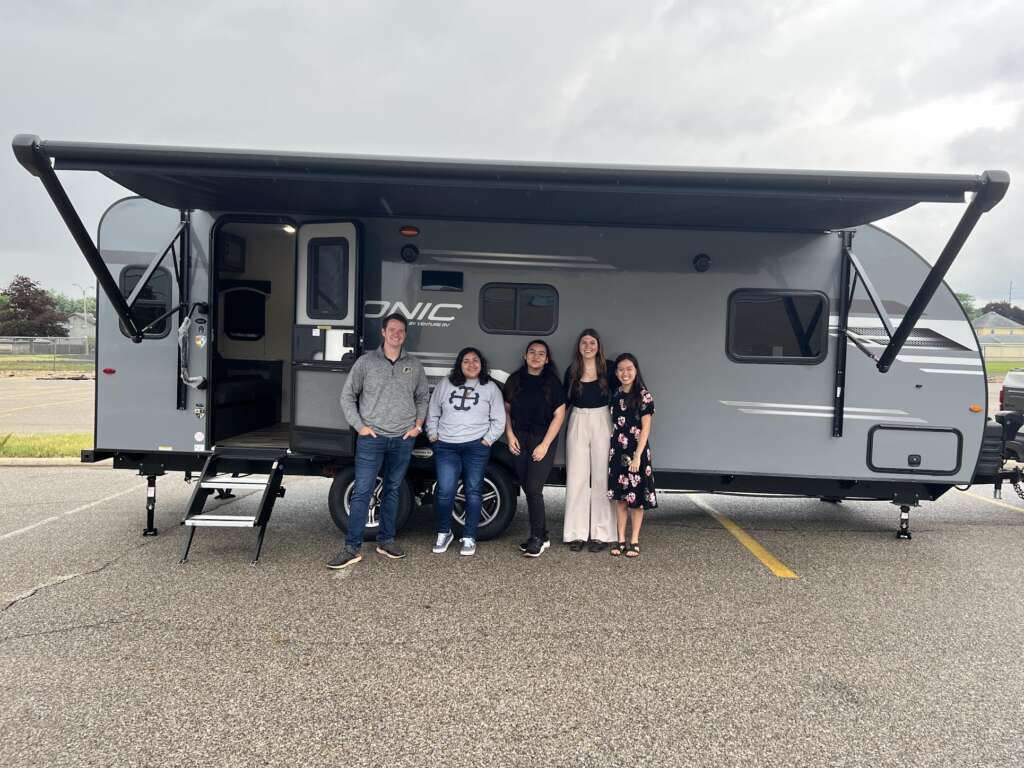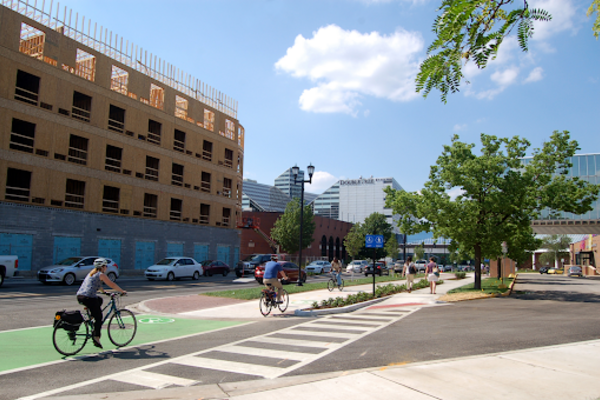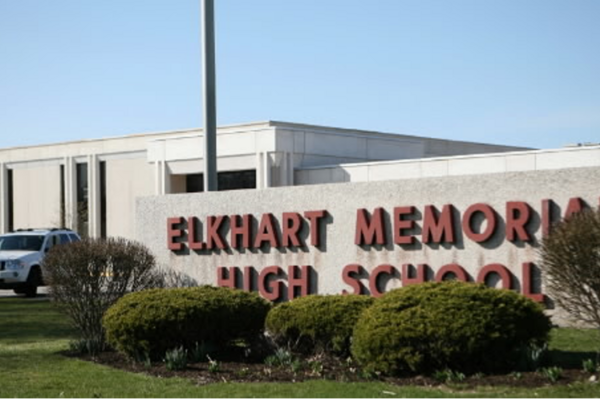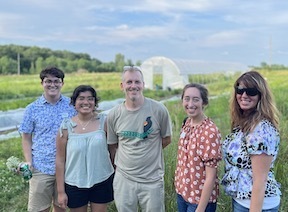In 2022, we returned to in-person internship programs in South Bend and Elkhart, welcoming 44 interns from 15 schools. Interns worked on 12 community-engaged projects, focusing on access to healthy food, neighborhood development, safe and affordable housing, community asset mapping, equitable access to data, and K-12 STEM engagement. We also launched the replication of our Community-Engaged Educational Ecosystem Model with partners at Youngstown State University and the University of Louisville, engaging 18 interns in 5 community projects.
Elkhart Recap

Advanced Manufacturing
CCI interns worked closely with THOR Industries to research route optimization for electric RVs to help reduce gas emissions. This project largely entailed computer programming and the team’s main deliverable resulted in a computer code that calculates the complex variables involved in measuring how much electricity the RV is using based off of one route: Sacramento to Yosemite. Interns made recommendations for when and where they would need to find the nearest charging station—including considerations for convenience of the drive as well as nearby tourist attractions while the RV owners are charging their vehicle.

Downtown Vibrancy Initiatives
Working with the City of Elkhart Development Services, the project team worked to collect Downtown Elkhart business inventory data to create a user-friendly interactive Geographical Information Systems (GIS) file for the city. This information will help inform the “bright” or “blight” spots of Downtown to inform future development projects. They also created an executive summary with their recommendations and developed a website outlining and organizing the team’s findings. Based on their recommendations, the city can determine what areas to further support and where to allocate funds for economic development to the community’s benefit.

Internship Accessibility
CIL interns worked to identify and mitigate barriers to internships for local college and high school students, with a focus on partnering with Elkhart Community Schools (ECS). The team collected responses for 3 surveys gathering information on internship accessibility and interest as a whole, the challenges students face, and, more specifically, transportation barriers. The team also delivered a proposal to the Michiana Area Council of Governments (MACOG) based on the survey data they collected and established a connection between 160 Driving Academy and ECS to begin a Commercial Driver’s License Program within the school.

Renewable Energy Comparisons
CIL interns designed and helped implement an efficient renewable energy system to power Bushelcraft Farm’s electrical needs—including one existing and one new hoop house. Additionally, the group researched rainwater catchment systems to incorporate rainwater usage in the farm. The team took into consideration the farm’s budget and how their proposed solutions fit within time and monetary constraints, and they also presented their progress, research, and plans for the farm’s future at a Bushelcraft Fundraiser Event, helping to raise enough funds for implementation of the new hoop house.